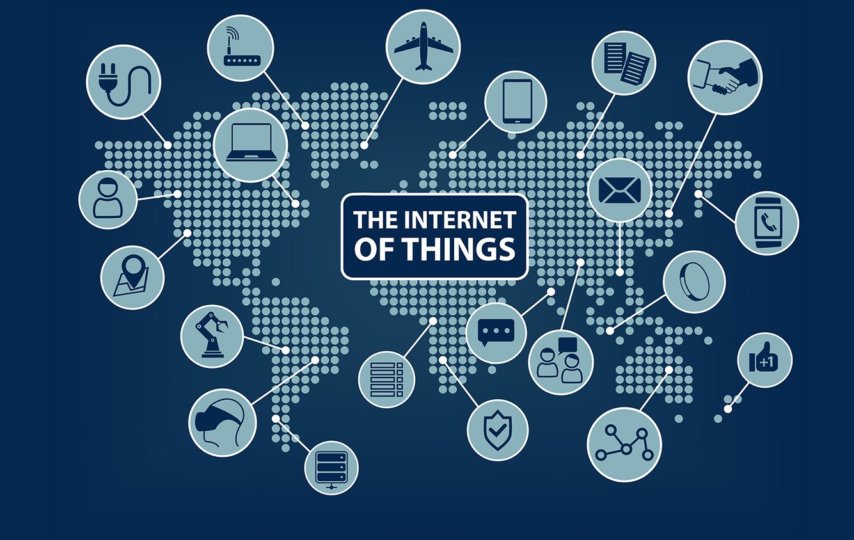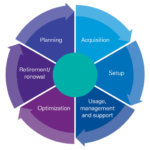Science fiction that previously starred in our wilder imaginings is our incontrovertible reality today. We are so abjectly reliant on technology today that a mere day without a cellphone elicits a feeling of helplessness, and an erratic internet connection drives us to conniptions. One wonders what would have been the reaction of Edison or Einstein upon witnessing the technological innovations of the 21st century.
One of the most bleeding-edge innovations of this era is the burgeoning prevalence of connected devices and customized data analytics. With highly customized data sets and their real-time reporting, and advanced micro devices, Google, Apple, Amazon, and their likes are delivering hyper-personalized services to millions of users through their intelligent assistants i.e. Google Assistant, Siri, and Alexa.
In addition, the availability of ultra-fast internet within the reach and budget of every citizen in the U.S., courtesy of competitive Internet Service Providers with their advanced network infrastructures and pricing tiers, have made assimilation of IoT in the American households much easier.
This proliferation has wrought the impingement of inter-connected device systems into a myriad of consumer industries, so every other household electronic device such as TV, refrigerator, light bulb, vacuum cleaners, or thermostat, has become smart because it is now connected to the internet and can interact with other devices without human interference. This ecosystem of intelligent and responsive devices in our everyday lives is the Internet of Things (IoT)
However, the debate regarding the pros and cons of the Internet of Things still rages as companies eagerly transform ordinary devices into smart ones, while users remain wary of its consequences for their privacy and security.
Internet of Things: The Perks
IoT is proving invaluable in these areas:
- Air Quality & Pollution Monitoring
Air quality has substantially worsened in the past three decades with growing vehicle emissions, combustion of fossil fuels at industrial plants, household heating and cooking, forest fires, and manufacturing of aviation fuels among other urbanization processes. By 2040, EEA expects emission of CO2 and NOx from aviation alone is going to increase by at least 21% and 16%, respectively. IoT solutions for air quality spell hope for our environment as they are efficiently deployed across the cities to measure air quality and personal exposure to air pollution in real-time
- Smart Security Surveillance
IoT is driving the security industry as it delivers 24/7 unfaltering surveillance to users. Previous CCTV systems only provided additional eyes to users but required constant human supervision. However, smart security apparatus not only records, but also analyzes video data, and provide appropriate response in real-time at speeds, which even humans can’t match. For example, IoT devices can detect fire and smoke at the earliest and activate proper safety response without human assistance.
- Home Automation
IoT has brought in a revolution for household appliances by taking automation to the next level. Home automation appliances ease our everyday life with their smart and intuitive workings. Smart lights can switch on and off, dim, and change colors, depending on the occupants in the room. Smart thermostats can save up to half of your energy bill with their efficiency and manage room temperatures as per everyone’s comfort. Smart locks let you manage comings and goings of your house remotely. Smart plugs can connect ordinary electronic appliances to the internet so you can manage via an app or smart speaker. Futuristic homes seen in movies now are our own.
- Industrial Applications
IoT offers a variety of large-scale applications for manufacturing plants, from monitoring of development cycles to intelligent management of warehouses and inventories to automation of ERP systems. IoT solutions would enable industrial processes to be self-dependent as AI-ML detect issues and resolve them on their own. IoT would also save precious time and resources for industries via automation.
- IoT for People with Special Needs
One of the greatest boons that IoT has brought in is for people with disabilities. Companies are introducing smart solutions to enable disabled individuals to tackle the world just like an average human being. Smart Solutions, an Alabama-based company, have invented a multitude of products for special needs people that allows them to control and manage door, blinds, lighting systems, climate, security, cameras, and even key fobs.
Internet of Things: The Curse
IoT presents certain risks to users:
Privacy Concerns
The efficacy of IoT depends on the AI-enabled software, which in turn is contingent on user-based metrics. In most instances, user data is collected without their consent or even knowledge, and the data involved can be highly sensitive. The troves of data aren’t solely utilized for the purpose of IoT, rather corporations can identify usage patterns and behaviors, and profit from selling that data to third-party marketing companies. In the world of big data and gargantuan profits, a person’s privacy is rendered inconsequential.
Compromise on Security
Anything that is connected to the internet is vulnerable to cyber-attacks, so when every household item is connected, risks multiply. Security measures for IoT devices are flimsy at the best. In fact, 98% of all IoT devices are unencrypted and with a mere tap from a hacker, your confidential information is theirs to exploit on the dark web.
On the other hand, the private data that corporations collected isn’t exactly shared with third-parties via foolproof methods and that too often without a user’s consent. One such instance is of LG Smart TV in 2013 as it collected user data and transferred it via unencrypted channels.
Internet of Things: The Future
Though there are multiple risks associated with the technology, its advantages far outweigh the cons. So despite users ‘objections, corporations are going to go ahead and produce more advanced IoT solutions with the help of user data analytics. However, IoT companies should also prioritize user security and privacy, and enable advanced security and encryption methods when handling confidential data, along with refraining from selling data to third parties without users’ consent.



